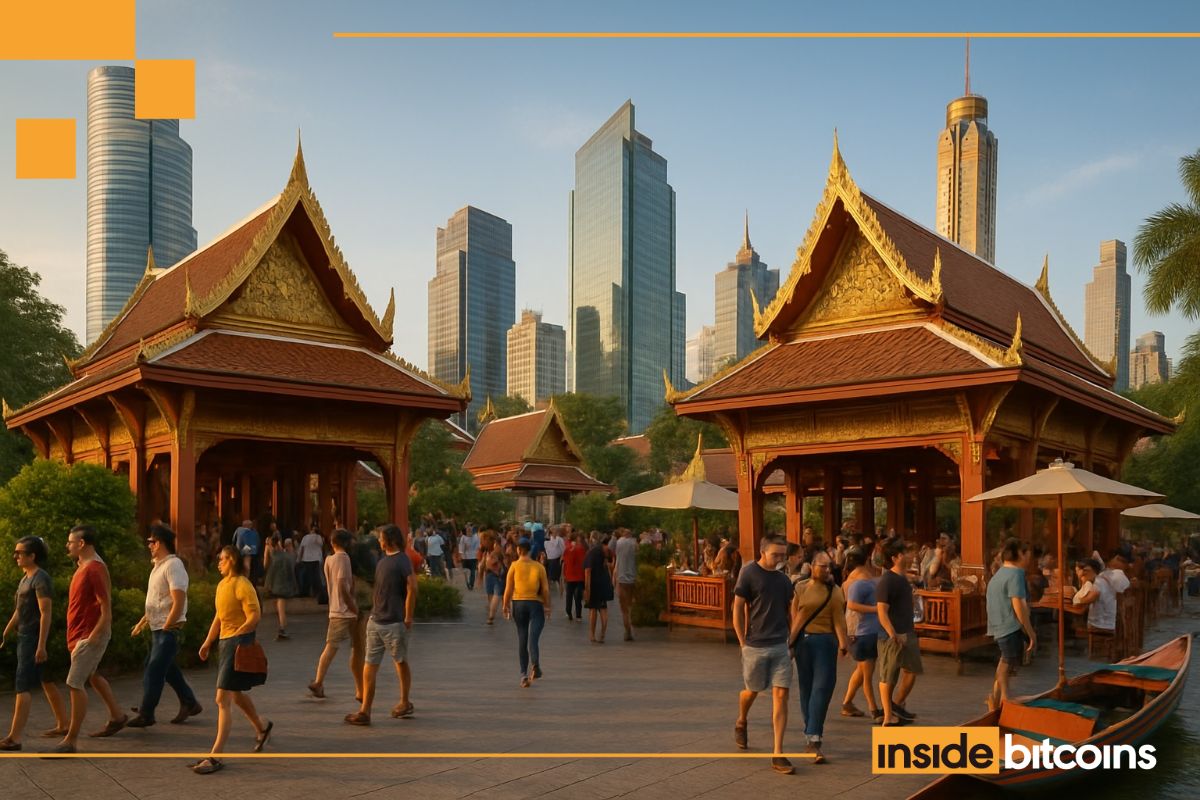Thailand is on the brink of a major transformation in its entertainment and tourism sectors as the country moves steadily toward legalizing integrated resorts with casino operations. This development has attracted significant attention from global gaming giants, with MGM Resorts emerging as a vocal advocate for competitive regulations. The Southeast Asian nation, historically conservative regarding gambling, is now working through legislative processes that could position it as a major competitor in the regional gaming landscape by 2026.
Thailand’s Legislative Path Toward Casino Legalization
As we have previously reported, Thailand’s journey toward casino legalization has gained momentum in recent years, marking a significant shift in the country’s approach to gambling. Since 1935, gambling has been heavily restricted in Thailand, with only state-run horse racing and lotteries permitted. Despite these restrictions, illegal and unregulated gambling activities have become widespread throughout the country, prompting the government to reconsider its stance and explore regulated alternatives.
The Thai cabinet approved the second draft of the Entertainment Complex Bill in March 2025, following an initial approval in January. This legislation would permit casinos to operate within large-scale “integrated resorts” modeled after similar developments in Singapore. Deputy Minister of Finance Julapun Amornvivat has indicated that the casino bill is expected to be enacted in early 2026, following a comprehensive legislative review process.
The government has outlined a detailed timeline for the Entertainment Complex Business Act. After receiving cabinet approval, the draft law will be submitted to the Council of State for a 45-day review period before returning to the Cabinet and subsequently moving to Parliament by March 2025. Following parliamentary deliberation, the bill is projected to be finalized and enacted during the first quarter of 2026.
This legislative progression represents a landmark development for Thailand, potentially creating a regulated environment for casino gaming that could generate substantial economic benefits while addressing concerns about illegal gambling operations. The Thai government’s approach demonstrates a careful balance between embracing new economic opportunities and implementing appropriate regulatory safeguards.
Current Status and Timeline
The bill has already cleared significant hurdles in its journey toward becoming law. After the March 2025 cabinet approval, the first parliamentary reading was postponed in April 2025 due to political opposition. The legislation is expected to be reintroduced in Parliament around July 2025, with market opening projected between 2026 and 2028.
Once the bill becomes law, the Integrated Entertainment Policy Committee will assess and announce investment conditions later in 2026, followed by a bidding process for entertainment complex projects. Construction is anticipated to begin in 2027, with the government aiming for completion within 3-4 years, ideally before the end of its current term.
The Entertainment Complex Vision
Thailand’s approach to casino gaming emphasizes integrated entertainment complexes rather than standalone casinos. This model follows successful implementations in Singapore and other jurisdictions where casinos represent just one component of larger tourism and entertainment destinations.
The proposed entertainment complexes in Thailand will be comprehensive developments occupying approximately 300 rai (about 120 acres) of government-designated land. According to Prommin Lertsuridej, Secretary-General to the Prime Minister, these state-of-the-art complexes will include 4-5 hotels totaling 5,000 rooms, large theme parks, international convention centers, and year-round events such as concerts.
Notably, the casino portion will comprise only 3-5 percent of the total area, according to initial government statements, though the legislation specifies that casinos can occupy up to 10 percent of an entertainment complex’s total space. This limitation ensures that gambling remains just one facet of a broader entertainment and tourism experience.
The Thai government envisions these complexes as world-class destinations that will enhance Thailand’s appeal in the competitive Asian tourism market. With investment targets of at least 100 billion baht (approximately $3 billion) for each new casino and entertainment complex, these developments represent significant potential for economic growth and international investment.
Major Players and International Interest
Thailand’s move toward casino legalization has generated considerable interest from major international gaming operators. According to Thai government officials, six to seven major international investors have already expressed interest in developing full-service entertainment complexes in Thailand. These potential operators include Las Vegas Sands, Wynn Resorts, Caesars Entertainment, MGM China, Hard Rock Group, and Melco Resorts & Entertainment.
MGM Resorts has emerged as a particularly vocal contender, with the company preparing to invest between $3 billion and $5 billion in a casino resort in Bangkok. Ed Bowers, MGM’s President of Global Development, has shared insights on the company’s approach to the Thai market, noting that Bangkok would be the preferred location due to its large population, existing infrastructure, and proximity to international airports.
Bowers has emphasized that MGM would prefer to have its casino occupy 5-10% of the total resort area, aligning with the government’s regulatory framework that caps casino floor space at 10%. This approach mirrors successful integrated resort models in Singapore and Japan, where casinos represent only a portion of larger entertainment complexes.
The competition for licenses in Thailand is expected to be intense given the market’s potential. Industry analysts project that Thailand’s gaming market could exceed $10 billion annually once fully established, making it one of the most lucrative new gaming jurisdictions in Asia. This potential has attracted operators with extensive experience in other Asian markets, particularly those looking to diversify beyond traditional gaming hubs like Macau.
Regulatory Considerations and Tax Structures
As Thailand develops its regulatory framework for casino operations, tax rates and entry requirements for locals have emerged as critical considerations. MGM Resorts has urged Thailand to adopt a tax rate that is competitive with Singapore if the country hopes to achieve its economic objectives.
The tax landscape for casinos across Asia varies significantly. Macau imposes a special gaming tax of 35% on gross gaming revenue, while Japan plans to charge a 30% fee on gross gaming revenue. Singapore, often cited as a model for Thailand, maintains an average gaming tax rate of 17-20%. By contrast, Laos has proposed increasing its casino taxes from 35% to 50%, while the Philippines applies a 5% franchise tax to PAGCOR’s gaming operations.
Bowers has advocated for Thailand to consider these competitive factors when determining its casino tax structure, suggesting that aligning with Singapore’s rate would position Thailand favorably in the regional market. The final tax rate decision will significantly impact operator interest and potential investment levels in the Thai market.
Access for Local Residents
Another key regulatory consideration is whether and how Thai nationals will be permitted to gamble in the new casinos. The current draft of the Entertainment Complex Bill includes strict requirements for Thai citizens, including an entry fee of 5,000 baht ($147) and proof of at least 50 million baht ($1.4 million) in a fixed deposit account maintained for six months.
These restrictions have generated debate, with some supporting measures to protect vulnerable populations and others, including MGM’s Bowers, cautioning that overly restrictive policies could undermine the market’s potential. Bowers has cited South Korea’s foreigner-only casinos as a cautionary example, noting that some have encountered financial difficulties due to limited market access.
Japan has taken a middle-ground approach, planning to collect an entry fee of approximately JPY6,000 ($40) from locals wishing to enter casino resorts. Bowers has acknowledged this approach but advised Thailand to ensure that any entry fee is set at a level that doesn’t discourage participation.
Economic and Social Implications
The potential economic benefits of Thailand’s casino initiative are substantial. According to industry projections, the Entertainment Complex Bill could increase foreign visitor numbers by five to ten percent and boost tourism revenue by 120-220 billion baht ($3.45-6.32 billion). Additionally, these developments are expected to create 9,000-15,000 new jobs, providing a significant economic stimulus.
Bowers has argued that allowing locals regulated access to casino gaming would offer benefits beyond direct economic impact. He suggests that access to legal alternatives would protect consumers from unregulated operators, while casino taxes could fund education and problem gambling support programs.
The development of integrated resorts in Thailand also positions the country to compete more effectively with established gaming destinations in the region. Singapore’s integrated resorts have demonstrated the potential for casino gaming to enhance a destination’s overall tourism appeal when implemented with appropriate regulatory safeguards.
Critics of the casino initiative have raised concerns about potential negative social impacts, including problem gambling and illicit financial activities. In response to these concerns, the Entertainment Complex Bill includes strict regulations designed to ensure a balanced approach between economic growth and social protection.
Bowers has countered these concerns by noting that large-scale entertainment complexes are well-equipped to address issues like problem gambling and money laundering due to their substantial resources and sophisticated compliance systems. This position aligns with the regulated gaming industry’s broader argument that legal, well-regulated operations provide safer alternatives to illegal gambling activities.
The Road Ahead for Thailand’s Gaming Industry
As Thailand continues to refine its approach to casino gaming, the next few years will be critical in determining the shape and success of this emerging market. This move needs to be seen within the larger context of an exciting time for the entire gambling industry worldwide, as new developments such as crypto casinos are unfolding.
The legislative process is expected to conclude in early 2026, followed by the establishment of specific investment conditions and a competitive bidding process for licenses. Construction of the first integrated resorts could begin as early as 2027, with operations potentially launching in the 2029-2031 timeframe. This timeline positions Thailand to benefit from growing regional tourism while learning from the experiences of more established markets like Singapore, Macau, and the emerging Japanese market.
MGM Resorts and other potential operators will be closely monitoring these developments, assessing how Thailand’s final regulatory framework aligns with their investment criteria. The government’s decisions on tax rates, local access policies, and other regulatory details will significantly influence which operators ultimately pursue licenses and the scale of their investments.
Thailand’s cautious but deliberate approach to casino gaming represents a recognition of both the potential economic benefits and the need for appropriate safeguards. By emphasizing integrated resorts rather than standalone casinos, the country is positioning itself to create a balanced gaming industry that enhances its broader tourism appeal while mitigating potential negative impacts.
The success of Thailand’s casino initiative will depend on finding the right balance between competitive operating conditions that attract investment and regulatory measures that ensure responsible development. As Ed Bowers and MGM Resorts have emphasized, decisions about tax rates and market access will be particularly crucial in determining whether Thailand can achieve its ambition of creating a world-class gaming destination.
Related Pages
- Thailand Advances Toward Legal Casino Operations with New Draft Law Approval
- Thailand’s Casino Legalization Receives Widespread Public Support
- Mastermind Behind $14 Billion Crypto Pyramid Scheme Extradited to China from Thailand
- Thailand Launches Digital Asset Regulatory Sandbox for Crypto Service Testing


